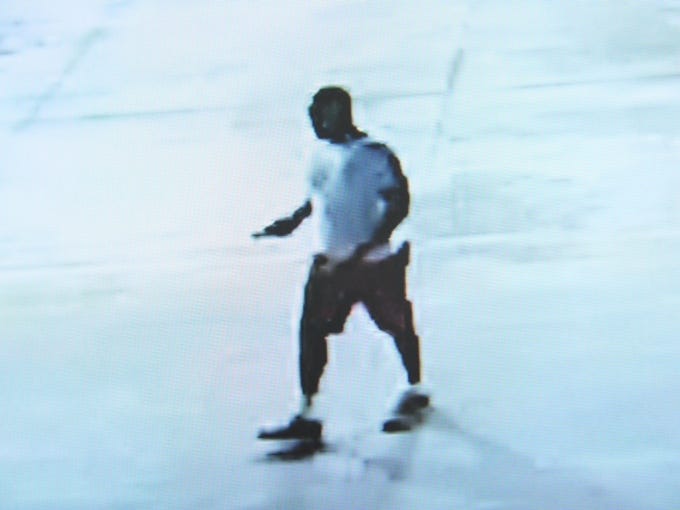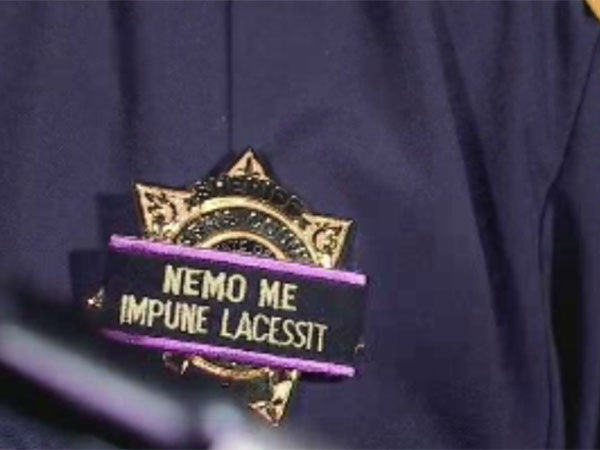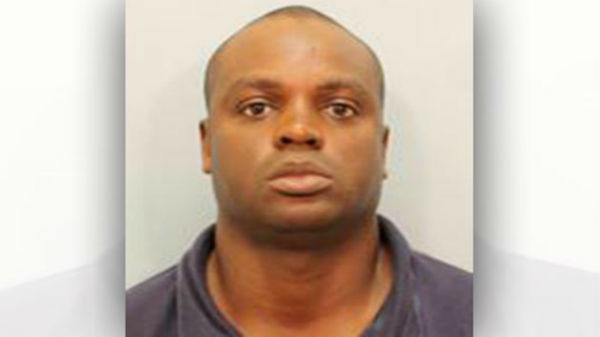Knowing and proving are two very different things.
Scott Ballard has released this statement to local media regarding his dealing with the McCollum case.
He did what he could for justice, and voluntarily offered this explanation to the public. Transparency is something often spoken about, but rarely practiced today.
The case:
Chief William McCollum called 911 to report a shooting. The 911 call is the most unusual call I have ever analyzed.
The victim was Margaret McCollum.
Statement Analysis showed that McCollum was deceptive about bringing his firearm to bed. Deception is not seen when one has alcohol blackout, but when one has a need to deceive. As to shooting her intentionally, I do not know; the analysis revealed several major points:
1. He was deceptive about bringing the gun to bed;
2. His distancing language from his wife is the most extreme I have ever encountered. He actually made it through an entire 911 call in which he never used the the victim's name, the possessive pronoun "my" towards her, nor any title, of "wife" or "ex wife", or "finance", etc. The distancing language is so extreme that it is hostile.
3. He revealed his priority: his own self; his career, not the woman lying next to him, bleeding to death.
4. His brevity was also extreme; to the point where he forced the 911 operator to ask needless questions. He worked against police in this 'interview.' Every call will reveal that the caller is either working with police to facilitate the flow of information, or is working against them.
He worked against them.
5. Maggie was reportedly asked if she thought he did this intentionally and replied "I don't think so."
The analysis is HERE which is interesting to read in light of what the prosecutor has said about the case.
I have interviewed more victims of domestic violence than I can number, including lengthy interviews, as well as in-depth counseling of familiar rape. Victims' denial is the one consistent factor through them all, as is minimization. Rarely will a victim give an initial honest account; she often is in deep denial that someone would "even do something like this to me" choosing to believe otherwise. Shame, deep and personal, insult, fear, and so many other factors that it is best seen in a case by case article. I have always found that the best way to get information from the victim is through the written statement and subsequent analysis. Then, where there is "missing information", I re-interview the victim. This never fails to produce more information. For some victims, the financial dependence upon the perpetrator is far worse than the public might believe. One young woman, a mother of two, was raped by her husband and reported it to the military. They told her that should she press charges, she would lose her medical benefits for herself but not the kids. She had a very serious condition that endangered her life. Next, his subordinates all came in to her apartment and pleaded with her to "forgive" him because "he's a great leader; a hero..." and so on.
Maggie, reportedly had friends plead with her not to return to him, and now she is utterly incapable of self care. Note Scott Ballard's personal concern for the victim.
Victims of domestic violence need a great deal of support. Too often, I have been in meetings with prosecutors who were so single minded on the "V", that the victim was not given the one thing she craved the most: a voice.
When a domestic violence victim first speaks, deception will likely be indicated. When a "win v loss" prosecutor raises an eye brow at the deception, he loses her trust. Most always the deception is in the form of the word "never"; as in "he never slapped me", (when he "punched" instead). This deception must be worked carefully through, overcoming her internal shame and the incessant self-blaming that a victim does.
"My father told me not to go with him. This is my own fault!" is common.
Worse still is the family reaction: "But we think he is a great guy!" and "It's not that we don't believe you, but he is so much fun and he loves you! Look at all he has done for you!" and on and on it goes, weakening the resolve, quietly whispering to the victim: 'you deserved this' in some form.
These are all presuppositions that go into the analysis. I don't know if I can recall a single interview with a victim that did not have 'deception indicated' initially. I doubt it.
Having a prosecutor understand these natural inclinations, including public shame no matter how much advocates try to counter is part of the initial process.
Scott Ballard had a very difficult case on his hands, but rather than focus upon the case, look at what the words reveal about the man, himself.
Scott Ballard willingly brought this report to the public. His own words reveal some of the conflicting within in, but reveal, instead, a man of deep personal integrity.
I cannot but wonder what our nation would be like with more prosecutors like Mr. Ballard.
I hope that victims of domestic violence read his personal care in this case, and are emboldened to come forward.
Mr. Ballard is clearly 'old school honor' and something we desperately need more of: truthful, committed, dedicated, caring prosecutors. Here is a statement that both investigators and defendants could trust to do what is right.
Too often attorneys "play" a game of "wins versus losses" in blind, personal ambition. Here, we have a prosecutor that could have stretched things and appeared "tough on cops" at a time when our nation's leadership is at war, not only with police, but with authority, itself.
His restraint, his words reveal, is due to what he could prove in court.
His words reveal truthful intercession for Maggie McCollum, specifically hurting that she is not able to walk.
Our country would be in a very different place have we had men like this in authority. Women who have been victimized would do well to have someone with his form of empathy. Justice is served when our laws are followed, even if we 'feel' differently about a case. Mr. Ballard followed the laws and his district should be proud to have him.
I admire him.
"When a case is pending I am very limited in what I can discuss about that case. If you think about it, that’s a pretty good rule.
We want jurors deciding a case based upon the evidence they hear in court and not what they read in the papers or see on TV.
Now that the case against former Peachtree City Police Chief William McCollom has ended, I think it is important to clear the record about some matters.
I didn’t really know Chief McCollom. He came to the police department to serve as assistant chief and we didn’t have an opportunity to interact in that capacity. He had only been chief a few months before the tragic night when his ex-wife was injured. I had talked with him once by telephone while he was chief, but we had never met in person.
If I had developed a relationship with him, I would have asked a district attorney from another circuit to handle the case. As it happened, I felt no conflict whatsoever and felt it was my responsibility to make the decisions that prosecutors make in such matters.
I didn’t have to ask for the assistance of the GBI. The Peachtree City Police had already invited them to investigate before I knew about the shooting. That was exactly the right decision by the department. It was critical for an unbiased agency to review this incident and the GBI is the proper agency for that job. They do this all the time.
I was very impressed by the Peachtree City officers during the entire case. It must have been an incredibly difficult time for them. Those men and women handled the stress and uncertainty of those times with admirable professionalism. They continued to protect the citizens of their city as if nothing had happened.
Chief McCollom cooperated fully with the investigation. He did everything asked of him, even when it must have been very emotionally painful for him to do so.
Maggie McCollom is an angel. For weeks I feared that she would die. At the same time I prayed that she would walk. Those prayers have not yet been answered and doctors seem to believe that she will forever be paralyzed from the waist down. I hope they are wrong.
Maggie and William remain together, though they are not married. They moved to Florida. If Maggie had her way, we would not have pursued any charges against William—she is convinced that the shooting was accidental.
The evidence supports that conclusion. All of it. There is no way that I would ever be able to prove otherwise. Any criminal charge that required me to prove that he intentionally shot her would be a waste of time.
That only left two options. Bring no charges. Or, charge the misdemeanor offense of reckless conduct. The grand jury and I chose the misdemeanor. A person violates that law if he “causes bodily harm to…another person by consciously disregarding a substantial and unjustifiable risk that his act or omission will cause harm or endanger the safety of the other person and the disregard constitutes a gross deviation from the standard of care which a reasonable person would exercise in the situation.”
The grand jury and I felt that when he got into bed with another person with a loaded gun after ingesting alcohol and sleep medication, he violated this law. And we felt that he should be charged despite a life of service in law enforcement.
Thursday he pled guilty. He must pay a fine of $1,000.
And I’m left with an empty feeling. It seems so inadequate. It makes nothing better.
But, I’m certain that we did what the law requires. He didn’t commit a felony. We didn’t charge him with one. He broke a misdemeanor law and he has pled guilty to it.
I wish the criminal justice system could always make things better. But, for this particular tragedy we’ll have to accept that it only did the best it could."





















